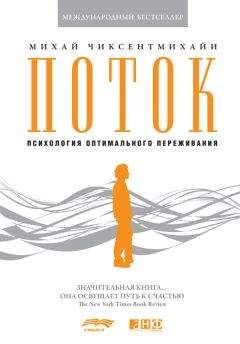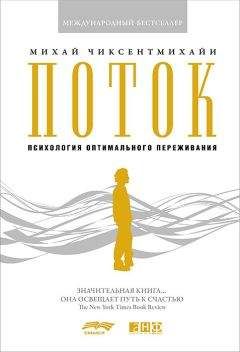Arnheim R. 1971. Entropy and art. Berkeley: University of California Press.
Arnheim R. 1982. The power of the center. Berkeley: University of California Press.
Arnold E.V. 1911 / 1971. Roman Stoicism. New York: Books for Libraries Press.
Atkinson R.C, Shiffrin R.M. 1968. Human memory: A proposed system and its control processes // The psychology of leaning and motivation / K. Spence, J. Spence (eds.) New York: Academic Press.V.2.
Baldridge L. 1987. Letitia Baldridge's complete guide to a great social life. New York: Rawson Assocs.
Bandura A. 1982. Self-efficacy mechanisms in human agency // American Psychologist.V.37.P.122–147.
Bateson G. 1978. The birth of a double bind // Beyond the double bind / M. Berger (ed.). New York: Brunner / Mazel. P. 53.
Baumgarten A. 1735 / 1936. Reflections on poetry // Aesthetica / B. Croce (ed.). Bari: Laterza.
Baumrind D. 1977. Socialization determinants of personal agency. Paper presented at biennial meeting of the Society for Research in Child Development. New Orleans.
Beattie O., Csikszentmihalyi M. 1981. On the socialization influence of books // Child Psychology and Human Development. V. 11 (1). P. 3–18.
Beck A.T. 1976. Cognitive therapy and emotional disorders. New York: International Universities Press.
Bee H.L. 1987. The journey of adulthood. New York: Macmillan.
Behanan К.Т. 1937. Yoga: A scientific evaluation. New York: Macmillan.
Bell D. 1976. The cultural contradictions of capitalism. New York: Basic Books.
Bellah R.N. 1975. The broken covenant: American civil religion in a time of trial. New York: Seabury Press.
Benedict R. 1934. Patterns of culture. Boston: Houghton Mifflin.
Berdyaev N. 1952. The beginning and the end. London: Geoffrey Bles.
Berger P.L., Luckmann T. 1967. The social construction of reality. Garden City, N. Y.: Anchor Books. Рус. пер.: Бергер П., Лукман Т. Социальное конструирование реальности. – М.: Академия-Центр; Медиум, 1995.
Bergler E. 1970. The psychology of gambling. New York: International Universities Press.
Berlyne D.E. 1960. Conflict, arousal, and curiosity. New York: McGraw-Hill.
Berman M.H. 1982. All that is solid melts into air. New York: Simon & Schuster.
Berman M. 1988. The two faces of creativity // The reality club / J. Brockman (ed.). New York: Lynx Books. P. 9–38.
Bettelheim B. 1943. Individual and mass behavior in extreme situations // Journal of Abnormal and Social Psychology. V. 38. P. 417–452.
Binet A. 1890. La concurrence des etats psychologiques // Revue Philosophique de la France et de I'Etranger. V. 24. P. 138–155.
Blom F. 1932. The Maya ball-game // Middle American Research Series, 1 / M. Ries (ed.). New Orleans: Tulane University Press.
Bloom A. 1987. The closing of the American mind. New York: Simon & Schuster.
Blumberg S.H., Izard С.Е. 1985. Affective and cognitive characteristics of depression in 10-and 11-year-old children // Journal of Personality and Social Psychology.V.49.P.194–202.
Boring E. G. 1953. A history of introspection // Psychological Bulletin. V. 50 (3). P. 169–189.
Boswell J. 1964. Life of Samuel Johnson. New York: McGraw. Рус. пер.: Босуэлл Дж. Жизнь Сэмюэля Джонсона. – М.: Текст, 2003.
Bourguignon E. 1979. Psychological anthropology. New York: Holt, Rinehart & Winston.
Bowen E.S. (pseud, of Laura Bohannan). 1954. Return to laughter. New York: Harper &. Bros.
Bowen M. 1978. Family therapy in clinical practice. New York: Aronson.
Bowlby J. 1969. Attachment and loss.V.1: Attachment. New York: Basic Books. Рус. пер.: Боулби Дж. Привязанность. – М.: Гардарики, 2003.
Boyd R., Richerson P.J. 1985. Culture and the evolutionary process. Chicago: University of Chicago Press.
Bradburn N. 1969. The structure of psychological well-being. Chicago: Aldine.
Brandwein R.A. 1977. After divorce: A focus on single parent families // Urban and Social Change Review.V.10.P.21–25.
Braudel F. 1981. The structures of everyday life. V.2: Civilization and capitalism, 15th – 18th century. New York: Harper & Row. Рус. пер.: Бродель Ф. Структуры повседневности: возможное и невозможное (Материальная цивилизация, экономика и капитализм XV–XVIII вв.) / Пер. с фр. – М.: Прогресс, 1986.
Bronfenbrenner U. 1970. Two worlds of childhood. New York: Russell Sage. Рус. пер.: Бронфенбреннер У. Два мира детства. Дети в США и СССР. – М.: Прогресс, 1976.
Brown N.О. 1959. Life against death. Middletown, Conn.: Wesleyan University Press.
Buhler C. 1930. Die geistige Entwicklung des Kindes. Jena: G. Fischer. Рус. пер.: Бюлер К. Духовное развитие ребенка. – М.: Новая Москва, 1924.
Burhoe R.W. 1976. The source of civilization in the natural selection of coadapted information in genes and cultures // Zygon. V. 11 (3). P. 263–303.
Burhoe R.W. 1982. Pleasure and reason as adaptations to nature's requirements // Zygon. V. 17 (2). P. 113–131.
Burney C. 1952. Solitary confinement. London: Macmillan.
Caillois R. 1958. Les jeux et les hommes. Paris: Gallimard.
Calvin W.H. 1986. The river that flows uphill: A journey from the big bang to the big brain New York: Macmillan.
Campbell A.P. 1972. Aspiration, satisfaction, and fulfillment // The human meaning of social change / A.P. Campbell, P.E. Converse (eds.) New York: Russell Sage.P.441–466.
Campbell A.P., Converse P.E., Rodgers W.L. 1976. The quality of American life. New York: Russell Sage.
Campbell D.T. 1965. Variation and selective retention in socio-cultural evolution // Social change in developing areas / H. R. Barringer, G. I. Blankston, R. W. Monk (eds.) Cambridge: Schenkman. P. 19–42.
Campbell D.T. 1975. On the conflicts between biological and social evolution and between psychology and moral tradition // American Psychologist. V.30.P.1103–1125.
Campbell D.T. 1976. Evolutionary epistemology // The library of living philosophers / D.A. Schlipp (ed.). LaSalle, Ill.: Open Court. P. 413–463.
Carli M. 1986. Selezione psicologica e qualita dell'esperienza // L'esperienza quotidiana / F. Massimini, P. Inghilleri (eds.) Milan: Franco Angeli. P. 285–304.
Carpenter E. 1970. They became what they beheld. New York: Ballantine.
Carpenter E. 1973. Eskimo realities. New York: Holt.
Carrington P. 1977. Freedom in meditation. New York: Doubleday Anchor.
Carson J. 1965. Colonial Virginians at play. Williamsburg, Va.: Colonial Williamsburg, Inc.
Carver J. 1796. Travels through the interior parts of North America. Philadelphia.
Castaneda C. 1971. A separate reality. New York: Simon & Schuster. Рус. пер.: Кастанеда К. Отдельная реальность. – М.: ИД «София», 2003.
Castaneda C. 1974. Tales of power. New York: Simon & Schuster. Рус. пер.: Кастанеда К. Сказки о силе. – М.: ИД «София», 2003.
Chagnon N. 1979. Mate competition, favoring close kin, and village fissioning among the Yanomamo Indians // Evolutionary biology and human social behavior / N. Chagnon, W. Irons (eds.). North Scituate, Mass.: Duxbury Press. P. 86–132.
Cheng N. 1987. Life and death in Shanghai. New York: Grove Press.
Chicago Tribune. 1987. 24 September.
Chicago Tribune. 1987. 18 October.
Clark A. 1919. The working life of women in the seventeenth century. London.
Clausen J.A. (ed.) 1968. Socialization and society. Boston: Little, Brown.
Cohler B.J. 1982. Personal narrative and the life course // Life span development and behavior. V. 4 / P.B. Bates, O.G. Brim (eds.). New York: Academic Press.
Collingwood R.G. 1938. The principles of art. London: Oxford University Press. Рус. пер.: Колингвуд Р. Принципы искусства. – М.: Языки русской культуры, 1999.
Conrad P. 1982. Television: The medium and its manners. Boston: Routledge & Kegan.
Cooley С.Н. 1902. Human nature and the social order. New York: Charles Scribner's Sons.
Cooper D. 1970. The death of the family. New York: Pantheon.
Cousins N. 1979. Anatomy of an illness as perceived by the patient. New York: Norton. Рус. пер.: Казинс Н. Анатомия болезни с точки зрения пациента. Размышления о лечении и выздоровлении. – М.: Физкультура и спорт, 1991.
Crandall J.E. 1984. Social interest as a moderator of life stress // Journal of Personality and Social Psychology. V. 47. P. 164–174.
Crandall M. 1983. On walking without touching the ground: «Play» in the Inner Chapters of the Chuang-Tzu // Experimental essays on Chuang-Tzu. V. H. Muir (ed.). Honolulu: University of Hawaii Press. P. 101–123.
Crealock W.I.B. 1951. Vagabonding under sail. New York: David McKay.
Croce B. 1902 / 1909. Aesthetics. New York: Macmillan. Рус. пер.: Кроче Б. Эстетика как наука о выражении и как общая лингвистика. Ч. I. Теория / пер. с ит. В. Яковенко. – М.: Изд. «М. и С. Сабашниковых», 1920.
Croce B. 1962. History as the story of liberty. London: Allen &. Unwin.
Crook J. H. 1980. The evolution of human consciousness. New York: Oxford University Press.
Csikszentmihalyi I. 1986. II flusso di coscienza in un contesto storico: Il casodei gesuiti // L'esperienza quotidiana / F. Massimini, P. Inghilleri (eds.). Milan: Franco Angeli. P. 181–196.
Csikszentmihalyi I. 1988. Flow in a historical context: The case of the Jesuits // Optimal experience: Psychological studies of flow in consciousness / M. Csikszentmihalyi, I.S. Csikszentmihalyi (eds.). New York: Cambridge University Press. P. 232–248.
Csikszentmihalyi M. 1965. Artistic problems and their solution: An exploration of creativity in the arts. Unpublished doctoral dissertation, University of Chicago.
Csikszentmihalyi M. 1968. A cross-cultural comparison of some structural characteristics of group drinking // Human Development. V. 11. P. 201–216.
Csikszentmihalyi M. 1969. The Americanization of rock climbing // University of Chicago Magazine. V. 61 (6). P. 20–27.
Csikszentmihalyi M. 1970. Sociological implications in the thought of Teilhard de Chardin // Zygon. V. 5 (2). P. 130–147.
Csikszentmihalyi M. 1973. Socio-cultural speciation and human aggression // Zygon. V. 8 (2). P. 96–112.
Csikszentmihalyi M. 1975. Beyond boredom and anxiety. San Francisco: Jossey-Bass.
Csikszentmihalyi M. 1978. Attention and the wholistic approach to behavior // The stream of consciousness / K.S. Pope, J.L. Singer (eds.) New York: Plenum. P. 335–358.
Csikszentmihalyi M. 1981a. Leisure and socialization // Social Forces. V. 60. P. 332–340.
Csikszentmihalyi M. 1981b. Some paradoxes in the definition of play // Play as context / A. Cheska (ed.). New York: Leisure Press. P. 14–26.
Csikszentmihalyi M. 1982a. Towards a psychology of optimal experience // Review of personality and social psychology. V. 2 / L. Wheeler (ed.). Beverly Hills, Calif.: Sage.
Csikszentmihalyi M. 1982b. Learning, flow, and happiness // Invitation to life-long learning / R. Gross (ed.). New York: Fowlett. P. 167–187.
Csikszentmihalyi M. 1985a. Emergent motivation and the evolution of the self // Motivation in adulthood / D. Kleiber, M. H. Maehr (eds.). Greenwich, Conn.: JAI Press. P. 93–113.
Csikszentmihalyi M. 1985b. Reflections on enjoyment // Perspectives in Biology and Medicine. V. 28 (4). P. 469–497.
Csikszentmihalyi M. 1987. The flow experience // The encyclopedia of religion. V. 5 / M. Eliade (ed.). New York: Macmillan. P. 361–363.
Csikszentmihalyi M. 1988. The ways of genes and memes // Reality Club Review V. 1 (1). P. 107–128.
Csikszentmihalyi M. 1989. Consciousness for the 21st century. Paper presented at the ELCA Meeting, Year 2000 and Beyond, March 30 – April 2, St. Charles, Illinois.
Csikszentmihalyi M., Beattie O. 1979. Life themes: A theoretical and empirical exploration of their origins and effects // Journal of Humanistic Psychology. V. 19. P. 45–63.
Csikszentmihalyi M., Csikszentmihalyi I.S. (eds.) 1988. Optimal experience: Psychological studies of flow in consciousness. New York: Cambridge University Press.
Csikszentmihalyi M., Getzels J.W. 1989. Creativity and problem finding. // The foundations of aesthetics / F. H. Farley & R. W. Neperud (eds.). New York: Praeger, P. 91–116.
Csikszentmihalyi M., Getzels J.W., Kahn S. 1984. Talent and achievement: A longitudinal study of artists. A report to the Spencer Foundation and to the MacArthur Foundation. Chicago: University of Chicago.





